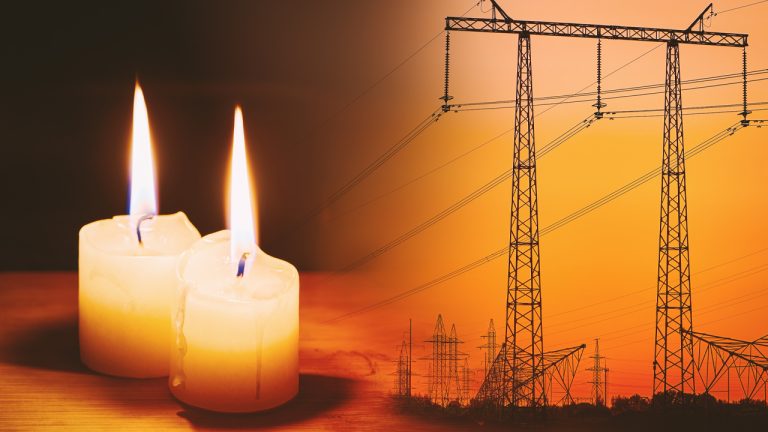Unplugged: The Impending Threat of Widespread Blackouts in Grid-Reliant Economies
Publikováno: 29.6.2023
 Lately, the media has been captivated by the possibility of a grid collapse and the devastating economic consequences it would entail. Curiously, the internet is teeming with headlines suggesting the plausibility of such a collapse, whether caused by cyberattacks, physical assaults on infrastructure, equipment malfunctions, or even the notion of an electromagnetic pulse (EMP) incapacitating […]
Lately, the media has been captivated by the possibility of a grid collapse and the devastating economic consequences it would entail. Curiously, the internet is teeming with headlines suggesting the plausibility of such a collapse, whether caused by cyberattacks, physical assaults on infrastructure, equipment malfunctions, or even the notion of an electromagnetic pulse (EMP) incapacitating […]

Lately, the media has been captivated by the possibility of a grid collapse and the devastating economic consequences it would entail. Curiously, the internet is teeming with headlines suggesting the plausibility of such a collapse, whether caused by cyberattacks, physical assaults on infrastructure, equipment malfunctions, or even the notion of an electromagnetic pulse (EMP) incapacitating the most influential energy providers.
Antiquated and Fragile Power Grids Putting U.S. and Global Economies on Edge
In recent months, the media has honed in on the potential for a grid collapse. On June 27, 2023, Wired writers Maryn McKenna and Matt Simon elucidated in an editorial that although the power system may possess resilience, it is not impervious to vulnerabilities. The article delves into the implications of scorching heat waves and questions whether contemporary power stations can withstand the demands. The authors elaborate on the detrimental impact hurricanes and earthquakes can have on the grid infrastructure, resulting in “widespread destruction.”
In a noteworthy development, Kgosientsho Ramokgopa, the electricity minister of the Republic of South Africa, expressed concerns about the detrimental effects of an excessive reliance on solar power, warning that it could potentially lead to a grid collapse in his region. Ramokgopa emphasized, “There are pitfalls to the rate at which you add new generation from solar PV. It has the potential to collapse the grid.”
Meanwhile, Forbes decided to put the AI-powered chatbot, Chatgpt, to the test, questioning it about potential triggers for a collapse of the U.S. electric grid. Chatgpt promptly identified factors such as “extreme weather events,” “insufficient power generation,” “transmission network overload,” “cascading failures,” and “lack of grid resilience.” An article published in calmatters.org says California’s regionally isolated power grid “leaves the state vulnerable to failure.” Discussions of grid failure are at their peak again in Texas this summer as local media outlets claim “Texans have the grid on their minds.”
Several countries have experienced widespread electric outages like Malaysia, Brazil, Argentina, Uruguay, and Paraguay. In 2006, Europe dealt with a cascading breakdown where millions of people were affected from Germany, France, Italy, Spain, Belgium, Netherlands, Poland, Switzerland, Czech Republic, Greece, Morocco, and Portugal. China suffered from severe blackouts and widespread electric outages in 2021 and it was reported that millions of homes and businesses were hit by power cuts. The fact is there are plenty of regions worldwide that could suffer from a major grid collapse.
Examples of this situation have happened time and time again all over the world. In April 2015, Washington D.C. experienced a widespread power outage that affected government and privately-owned buildings, as well as the city’s public transit rail system. The same year, Turkey experienced a massive nationwide power outage that affected almost all parts of the country. In March 2023, tripwire.com author Robert Ackerman Jr., explains that the “problem with the U.S. power grid [is that] it’s too vulnerable to attacks.” The number of reported attacks on the U.S. grid has surged in the past decade, with 2020, 2021, and 2022 being the most active.
Widespread and Long-term Outages Could Collapse a Nation-State’s Entire Economy; No Country is Protected from EMPs
In any country, a prolonged grid collapse yields significant and severe economic repercussions, as seen in the past. The consequences encompass contracting economies, job losses, collapsing supply chains, and rendering current grid-dependent financial systems essentially obsolete. Additionally, the prolonged absence of electricity can exacerbate matters by inflicting damage on critical infrastructure components. In fact, a widespread grid shutdown can precipitate the failure of a nation’s fiat system within days. Ultimately, the extent of impact and recovery timeline hinge upon diverse factors, including emergency response efficiency, resource availability, and the resilience of the population.
Thus far, both the United States and numerous other nations boasting interconnected grid systems have managed to withstand cyberattacks, physical assaults, and natural calamities. However, nation-states remain vulnerable to an electromagnetic pulse (EMP), a destructive phenomenon. EMPs can occur naturally through solar flares or be induced by the electromagnetic radiation resulting from a nuclear explosion. These events trigger widespread voltage surges in electrical systems, often leading to substantial damage to electrical components. Presently, no country possesses complete protection against EMPs, and the U.S. government has raised concerns regarding China and Russia, suspecting their possession of EMP attack capabilities.
What steps do you believe should be taken to enhance global preparedness against the catastrophic impact of widespread power outages and EMPs on national economies? Share your thoughts and opinions about this subject in the comments section below.